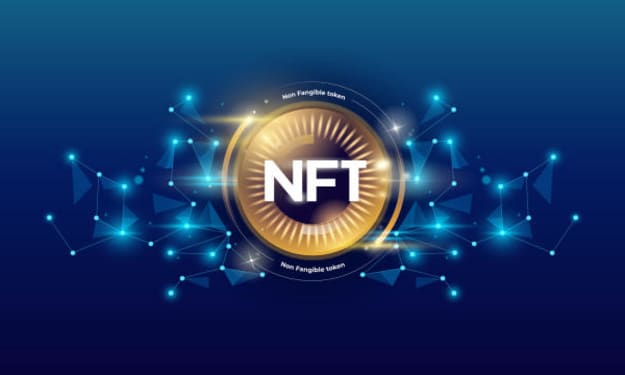NFT Marketplace Intellectual Property Rights
This blog explores the intellectual property issues surrounding NFT marketplaces, including copyright, trademark, and right of publicity, and discusses how they can be addressed to protect the interests of creators and buyers.

In recent years, Non-Fungible Tokens (NFTs) have emerged as a new and exciting form of digital asset that allows for unique digital content to be bought and sold on blockchain-based marketplaces. NFTs have been used to represent a wide range of digital assets, including artwork, music, videos, and even tweets. However, with the rise of NFT marketplaces comes the need to address the issue of intellectual property rights.
In this blog, we will discuss the intellectual property issues surrounding NFT marketplaces, including copyright, trademark, and right of publicity, and explore how they can be addressed to protect the interests of creators and buyers alike.
Copyright Issues in NFT Marketplaces
Copyright is a form of legal protection that grants the creator of an original work the exclusive right to use and distribute that work. In the context of NFT marketplaces, copyright issues arise when someone creates an NFT based on copyrighted content without the permission of the copyright owner.
Creators of NFTs need to ensure that they have the necessary rights to the underlying work before creating and selling an NFT. This means obtaining permission from the copyright owner or ensuring that the work is in the public domain or licensed under a Creative Commons license.
Buyers of NFTs also need to be aware of copyright issues when purchasing NFTs. They need to ensure that the NFT they are purchasing does not infringe on the copyright of the underlying work. Buyers should also be aware that owning an NFT does not give them the right to use or distribute the underlying work.
Trademark Issues in NFT Marketplaces
Trademarks are symbols, logos, or phrases that are used to identify and distinguish the goods or services of one company from those of another. In the context of NFT marketplaces, trademark issues arise when someone creates an NFT that incorporates a trademark without the permission of the trademark owner.
Creators of NFTs need to ensure that they are not infringing on any trademarks when creating and selling an NFT. This means conducting a trademark search to ensure that the trademark is not already in use and obtaining permission from the trademark owner if necessary.
Buyers of NFTs also need to be aware of trademark issues when purchasing NFTs. They need to ensure that the NFT they are purchasing does not infringe on any trademarks.
Right of Publicity Issues in NFT Marketplaces
The right of publicity is the right of an individual to control the commercial use of their name, image, likeness, or other identifiable aspects of their persona. In the context of NFT marketplaces, right of publicity issues arise when someone creates an NFT that uses the name, image, or likeness of a person without their permission.
Creators of NFTs need to ensure that they have the necessary rights to use the name, image, or likeness of a person when creating and selling an NFT. This means obtaining permission from the person or ensuring that the use falls under a fair use exception.
Buyers of NFTs also need to be aware of right of publicity issues when purchasing NFTs. They need to ensure that the NFT they are purchasing does not infringe on the right of publicity of any person.
Addressing Intellectual Property Issues in NFT Marketplaces
To address intellectual property issues in NFT marketplaces, there are several measures that can be taken. One approach is to require creators to verify that they have the necessary rights to the underlying work before creating and selling an NFT. This can be done through a process of documentation and verification.
Another approach is to establish a dispute resolution mechanism for intellectual property issues. This can be done through a system of arbitration or mediation that allows parties to resolve disputes outside of the court system.
Conclusion
NFT marketplaces offer exciting new opportunities for creators and buyers alike, but they also raise complex intellectual property issues. These issues can be addressed through a combination of education, documentation, verification, and dispute resolution mechanisms.
Ultimately, the success of NFT marketplaces will depend on the ability of creators and buyers to navigate these issues and protect their interests. By addressing these issues proactively and transparently, NFT marketplaces can create a safe and secure environment for the buying and selling of unique digital assets.
About the Creator
Angelina1122
I Started a Busniess - Class NFT & Crypto Development Services. I currently focused in blockchain technology and cryptocurrency. One could even call me a blockchain "enthusiast.





Comments
There are no comments for this story
Be the first to respond and start the conversation.